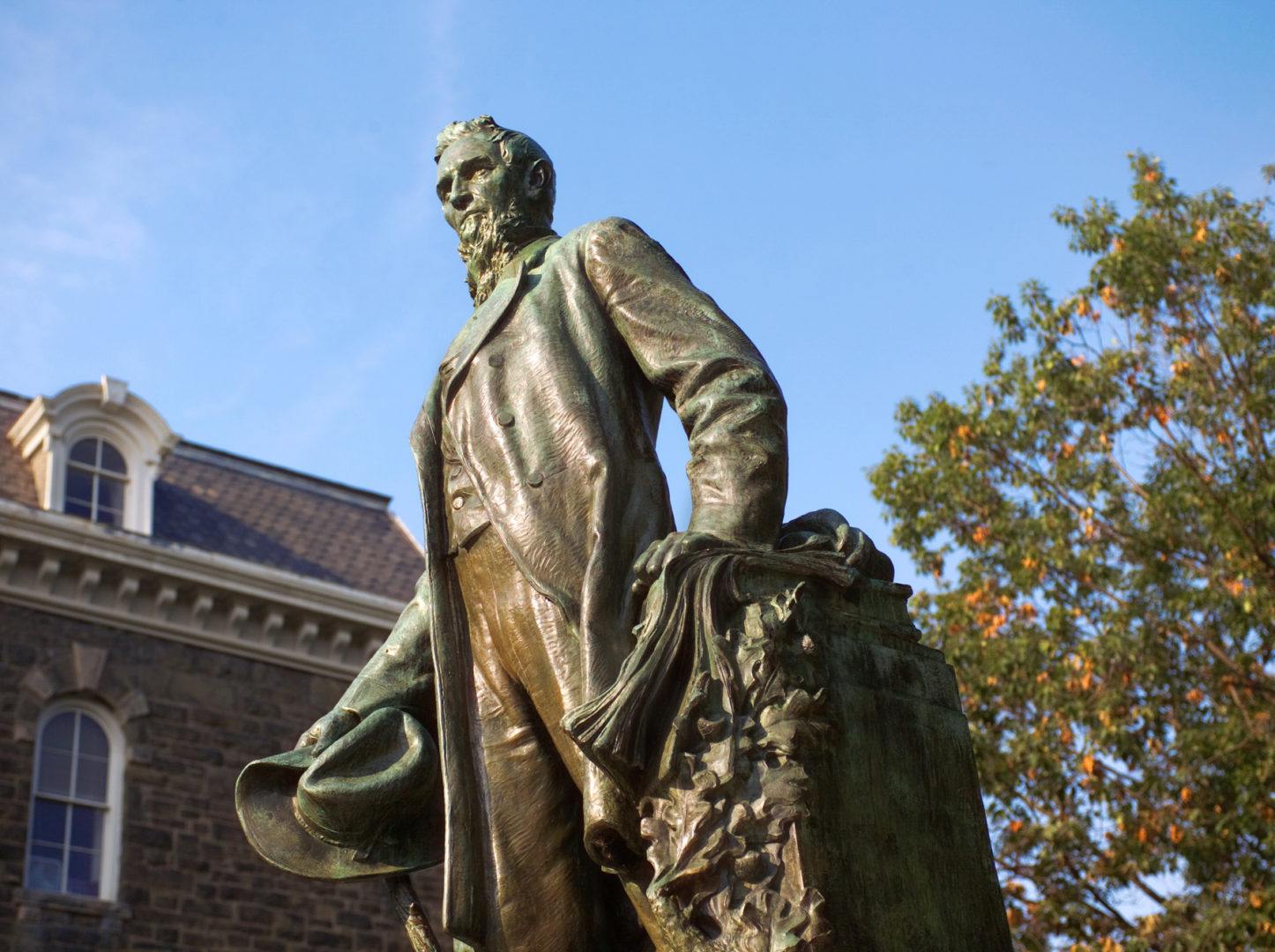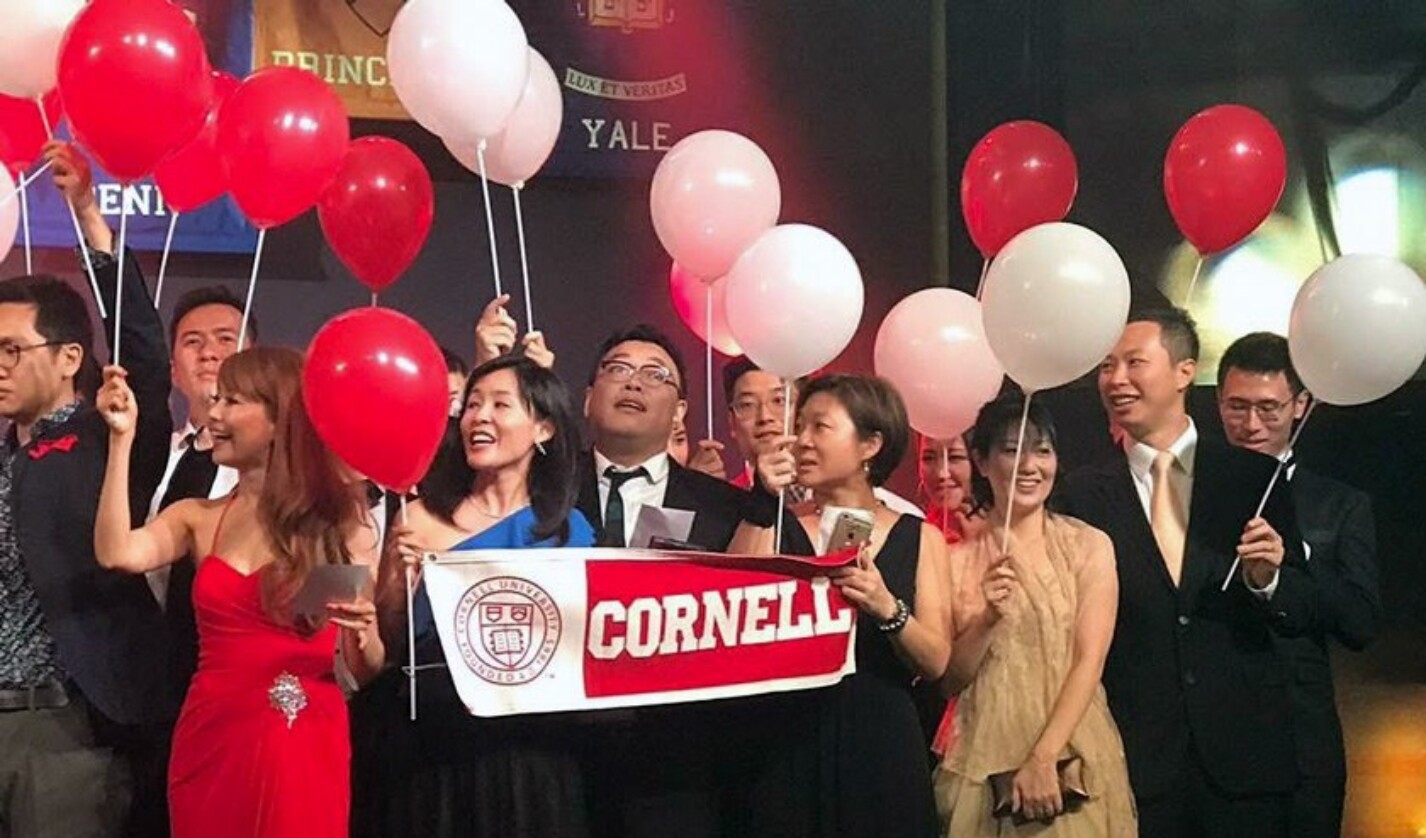Signed into law in December 2017, the Tax Cuts and Jobs Act will affect income taxes for individuals and businesses, as well as deductions for charitable gifts and estate taxes. We asked Chip Bryce ’81, executive director of Cornell’s Office of Trusts, Estates, and Gift Planning, how the new tax law may influence charitable giving to Cornell and what advice he has for donors.
“I think the good news for Cornell is that the vast majority of our donors are likely to continue to give for the reasons they always have: respect, honor, loyalty, gratitude, and a belief in Cornell’s mission,” he said. “Added to that are some largely positive impacts of the new law on charitable giving. I do not see the tax law, writ large, materially impacting the dollars we raise.”
What are some of the key changes that relate to giving?
Every U.S. taxpayer will be affected by the new tax law. The largest effect on our Cornell donors is likely to be the increase in the standard deduction. Many people who used to itemize will no longer need to do so. They will lose the ability to deduct charitable gifts, but they may gain more discretionary income through lowered tax rates.
Are there additional changes to highlight?
A much smaller segment of individuals will see changes related to the estate tax and pass-through income. The federal estate-tax exemption has been increased to $11.2 million for individuals and $22.4 million for couples. The tax rates for corporations and certain pass-through businesses have been significantly reduced.
There are still ways to nourish your charitable intent and secure tax benefits through your gifts. That’s what my office is here to help you with.
What remains unchanged by the new tax reforms as related to giving?
Tax consequences for gifts of appreciated securities, retirement plan gifts, IRA rollover gifts, and bequests are unchanged, preserving the value of these gift planning tools. For those who continue to itemize, charitable gifts will still be fully deductible and, in some cases, expanded.
Are there giving strategies that will allow donors to continue to benefit from itemized charitable deductions?
We count on our many loyal donors who give year after year to Cornell Annual Funds, supplying the university with unrestricted funds for students and faculty. However, some donors may choose to give every other year instead. By bunching charitable gifts, they may be able to exceed the standard deduction and deduct their gifts in alternate years.
Another approach for donors is to create donor-advised funds and still give annually to causes they care about. Donors can now open a fund through many brokers and community foundations with an initial gift and then add to it and make gifts from it on their own schedule. That way, every other year, or every several years, donors can plan for deductions that help them to exceed the standard deduction and qualify to itemize charitable gifts.
Both are easy solutions for individuals who feel that the loss of the ability to deduct their charitable gifts is an obstacle to making charitable gifts.
Are there any other strategies to mention?
Those over 70 and 1/2, and who may no longer itemize and yet have significant retirement accounts, might consider using a charitable IRA rollover—also called a qualified charitable distribution (QCD). Funds transfer directly to the charity of their choice and count toward their required minimum distribution (RMD), in effect deflecting a taxable event through a charitable gift. Donors don’t need to itemize to take advantage of them.
Some have predicted an overall national decline in charitable giving. How do you view this?
Of course, the proof will be in the pudding. Predictions of a big drop in giving across the United States focus on the idea that people write checks in order to get a deduction. Yet we know that’s not necessarily true for our Cornell donors. Many people have been giving for years without regard for the charitable deduction. The vast majority of our donors are likely to continue to give to Cornell. They really do care.
Are there changes that may positively influence giving?
In my mind, many of the tax law changes are intended to increase after-tax cash flow for households, corporations, and pass-through businesses. Therefore, if that results, there’s more room for charitable giving.
What would you advise donors who are concerned about how their giving choices may be impacted by new tax laws?
Each situation is different. Step one is to call your financial advisor and determine whether you are going to be an itemizer, or not. If you are going to be an itemizer none of this impacts you. If you are going to become a non-itemizer after being an itemizer, you should consider talking with a tax or financial advisor to decide whether bunching your gifts, creating a donor-advised fund, or utilizing qualified charitable distributions would be helpful to you. There are still ways to nourish your charitable intent and secure tax benefits through your gifts. That’s what my office is here to help you with.
Where can donors learn more?
Find up-to-date news and information on our website. As always, call us at the Office of Trusts, Estates, and Gift Planning at 1-800-481-1865 to talk about your charitable goals and how we can help.






